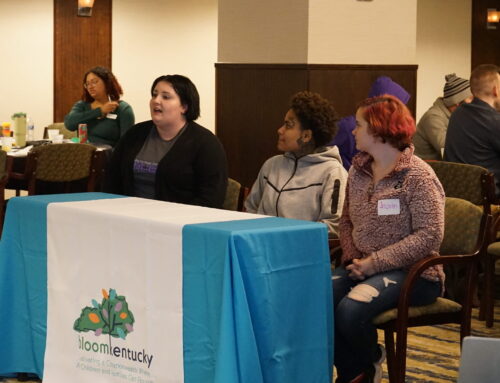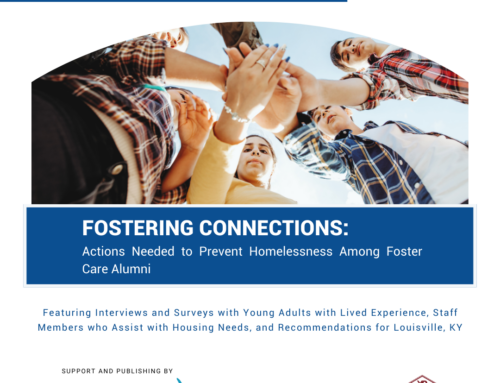By Tamara Vest
 This year, the Voices of the Commonwealth (VOC) set policy initiatives for young people in foster care. Those initiatives included amendments to the foster youth bill of rights to promote inclusivity for young people in several ways. They also advocated for changes to Kentucky’s extended foster care policy. The initiatives were filed into Senate Bill 8, which has been passed by both bodies of state legislature and signed by the Governor!
This year, the Voices of the Commonwealth (VOC) set policy initiatives for young people in foster care. Those initiatives included amendments to the foster youth bill of rights to promote inclusivity for young people in several ways. They also advocated for changes to Kentucky’s extended foster care policy. The initiatives were filed into Senate Bill 8, which has been passed by both bodies of state legislature and signed by the Governor!
New Foster Youth Bill of Rights Amendments:
The original foster youth bill of rights passed in the 2019 legislative session was a great piece of legislation that was very empowering for foster youth in Kentucky. Since its passing in the 2019 session, VOC realized some minor amendments that we feel should be made in order to address more needs and rights of youth in out of home care in our state.
The needs being addressed in our amendments are giving youth a right to request homes where they feel inclusive and represented by their foster parents, giving siblings and half-siblings the right to participate in sibling court hearings as deemed appropriate, a clause containing parenting youth rights for young mothers in foster care to know what rights they have if they also have a child while in foster care, and lastly, adding that a youth has the right to receive a copy of their case files including medical documents, vital documents, and other documents that may be vital to the youth progressing into adulthood. Our team believes these changes are simple, yet impactful for many at the same time.
- Youth have the right to request placement by made where he or she feels the most safe and comfortable. This allows youth of different ethnic backgrounds, religions, cultures, and SOGIE’s (sexual orientation gender identification and expression) to request placements where they feel included and supported. This allows them to reach past the level of love and belonging in Maslow’s hierarchy of needs. This allows youth to finally get out of survival mode and to thrive in their environments to become prospering young adults.
- Youth have the right to participate in a sibling or half sibling’s court hearings, if deemed appropriate by the Cabinet for Health and Family Services, court of jurisdiction, and guardian ad litem, if applicable. This amendment allows siblings to stay up to date on each other’s case progress and allow them to have a say in their sibling’s case goals. This gives siblings who may be separated a better sense of connection with the only form of permanency they may have left.
- Youth have the rights to raise his or her child and make decisions on behalf of his or her child unless a health or safety risk is determined by CHFS or due to the treatment needs of the youth. This amendment provides normalcy for youth in foster care who are also young parents. This amendment allows comfort for young parents who are already in state’s custody to know that their children will not automatically be removed from their care.
- When youth reach 18 or older, they have the right to receive a copy of their CHFS case history, including family medical history, placement history records, and the child’s medical records, such as physical, dental, vision, and mental health. This amendment aims to allow youth leaving foster care to have some documents that may give them some identifying information as to what medical concerns they currently have or may have in the future based on their own records or family records. The family records allow them to be more confident and comfortable answering questions about family when seeing a provider.
New Extended Foster Care Policy:
Youth have had the option to extend commitment to CHFS when they are 18. Previously, a youth was only able to make the decision to extend commitment or recommit (if they left care when they were 18) until their 19th birthday. The new policy states that now youth can have until their 20th birthday to decide if they want to extend their commitment or recommit to CHFS. Youth may now opt in or out of extended foster care up to two times.
This new policy structure provides flexibility for those who are not sure if they would like to extend commitment to the state’s care or want to leave. It also allows flexibility for those who may need to return to care and for those who did not extend but decide they want to return by their 20th birthday.
If you would like the VOC’s assistance or input on policy suggestions/changes, please contact ILC Tamara Vest at tvest@murraystate.edu.
Tamara Vest is an Independent Living Coordinator with Voices of the Commonwealth.





